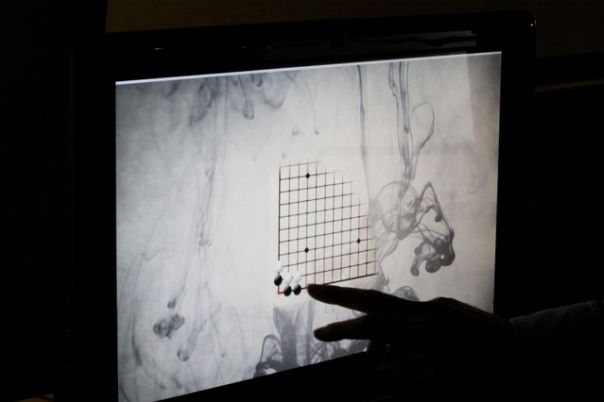My presentation Monday 3 September featured these slides:VSMM TaoismDIGHUMLAB
Tag Archives: Li Wang
VSMM2012 slides
HTML5 and touch screens
I will be giving a talk on Monday on playful touchscreen interfaces and although built in Flash, Li Wang’s touch screen taoist games may now also work in html 5, and across PC, touch screen PC and mobile touch screens! Great progress seems to have been made.
Some reference links for further exploring
- sketchpad online drawing app http://mudcu.be/sketchpad/
- tutorial http://www.html5rocks.com/en/mobile/cross-device/
- msdn and touchscreen http://msdn.microsoft.com/en-us/hh563503.aspx
- with flash http://www.2morodocs.com/2010/05/think-outside-the-computer-touchscreens-html5-flash/
- html 5 game examples http://html5games.com/category/iphoneipadmobile/
- html 5 drawing on an ipad http://tenderlovingcode.com/blog/web-apps/html5-canvas-drawing-on-ipad/
Li Wang (Neil) wins best student paper prize at CHINZ 2011
Neil Wang, a Master of Design student at the Auckland School of Design, was awarded the best student paper at the CHINZ2011 conference in Hamilton yesterday. He presented his pilot study results, (final results will hopefully appear later). Neil received NZ$300 and a certificate from the 12th ACM SIGCHI-NZ Conference on Human-Computer Interaction, held at the University of Waikato, New Zealand, over 4-5 July 2011.
Title: A Pilot Study of Four Cultural Touch-Screen Games
Abstract:Four simple single-player games (based on the “Four Arts” of traditional Chinese culture) have been designed in Flash for a touch-screen display. The aim is to allow players to experience a digital interactive recreation of traditional Chinese culture, in order to understand features of traditional Chinese culture and related philosophical concepts such as Daoism. To evaluate the effectiveness of the design, a pilot study was conducted with twelve participants, six were Chinese speaking and six were not. The pilot study suggest that there are differences between Chinese and non-Chinese users in perceived notions of authenticity and ease of use and it has provided us with ideas on how to improve both the games and the evaluation.
The “Go” game on the HP touchscreen.

